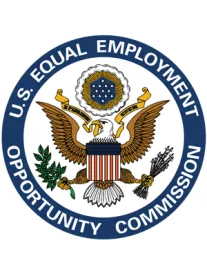The Equal Employment Opportunity Commission (“EEOC” or the “Agency”) recently released its annual financial report for the 2020 fiscal year. Relevant highlights from this report include discussion of a research study was commenced to determine whether there is a correlation between unemployment during economic downturns related to COIVD-19 and EEOC charge filings the EEOC’s continued focus on Alternative Dispute Resolution, and a noted reduction in the inventory of pending private sector charges.
In the 2020 fiscal year, the EEOC secured a record amount of recovery, more than $535 million, for victims of discrimination in the workplace. This includes $333.2 million in monetary relief for employees and applicants in the private sector and state and local government workplaces through mediation, conciliation and other administrative enforcement, and $106 million in monetary relief through litigation. The litigation recovery was the highest since 2004.
Additionally, the Agency successfully resolved 6,272 of the 9,036 mediations conducted and made efforts to increase employer participation. These efforts were successful, as the respondent participation rate was 31.7% in fiscal year 2020, 3.3% higher than the rate of participation in fiscal year 2019, which was 30.7%.
Pending private sector charges decreased by 3.7%, to 41,951 charges — the lowest in 14 years. The EEOC attributes this reduction to:
- launching EEOC Explore, a user-friendly, data query and mapping tool;
- modernizing the EEOC’s ten-year old external website by integrating it more effectively with social media activities, supporting multi-language capabilities and providing a mobile responsive platform for easier viewing on phones and tablets;
- streamlining the recruitment process to improve time-to-hire rates (as of September 30, 2020, the agency hired 260 new employees and all of the hires were made within the 78-day deadline); and
- the implementation of the Public Portal, Respondent Portal, and the Digital Charge System (DCS). The DCS allows potential charging parties to answer a series of questions leading to a self-screen (to determine if the EEOC is the proper agency to address their concern) and allows them to schedule an initial interview prior to filing a charge. As a result, 122,775 Potential Charging Parties initiated inquiries through the system. Of these portal inquiries, 30,294 were formalized into charges of discrimination.
Based on the Agency’s initiatives, it appears that the charge process will proceed in a more expeditious manner than in the past. A copy of the full report can be accessed by clicking here.



 />i
/>i

